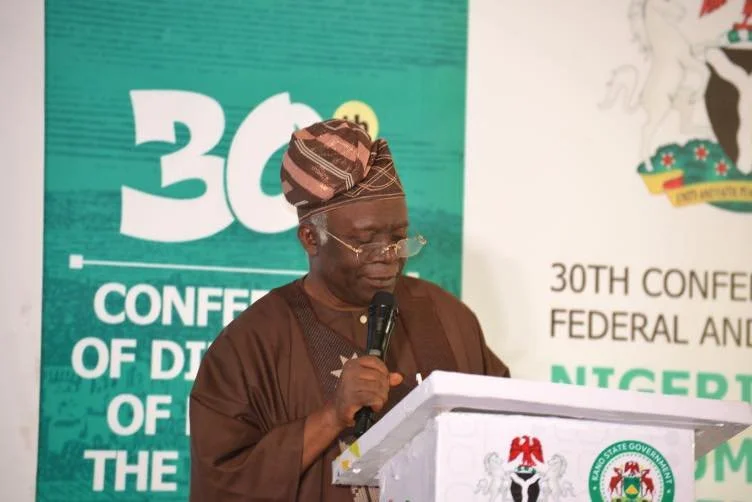Femi Falana Backs Federal Government’s Land4Growth Programme, Calls It a Catalyst for National Economic Transformation
Femi Falana Endorses Nigeria’s Land4Growth Programme, Calls It Key to Economic Transformation
Senior Advocate of Nigeria, Femi Falana, has endorsed the Federal Government’s Nigeria Land Titling, Registration and Documentation Programme (Land4Growth), describing it as one of the country’s most significant structural reforms for unlocking economic value, strengthening property rights, and expanding access to housing finance.
Falana delivered the remarks on Day Two of the 30th Conference of Directors of Lands in Kano, a technical meeting convened to review national land administration reforms and State-level implementation progress.
A Reform Positioned to Unlock Dead Capital
Falana stated that the Land4Growth initiative offers a practical pathway to transform land from “dead capital” into a productive asset. Citing national estimates, he noted that more than ninety per cent of land in Nigeria remains undocumented, limiting its use as collateral, constraining mortgage uptake, and enabling the proliferation of illegal land markets.
According to him, a comprehensive titling programme will expand the formal economy, reduce investment risks, and enable citizens to leverage land for credit, enterprise growth and intergenerational wealth creation.
He commended the Federal Ministry of Housing and Urban Development for setting an ambitious target of raising national land registration from under 10% to 50% within 10 years, supported by a forthcoming partnership with the World Bank.
Strengthening Property Rights and Eliminating Illegal Practices
Falana highlighted that weak documentation fuels land disputes, extortion by informal actors, and insecure tenure, particularly in peri-urban and rural areas. He argued that Land4Growth provides a framework for restoring order, protecting citizens, and improving transparency in land markets.
He added that stronger enforcement of the Land Use Act, coupled with clear and accessible titling pathways, would significantly reduce conflicts and enhance investor confidence across the real estate and agricultural sectors.
Inclusiveness and Access Must Guide Implementation
While expressing confidence in the programme’s potential, Falana emphasised that the reform must remain people-centred. He advised government to ensure that titling especially for low-income households and customary communities does not become a financial barrier.
He recommended financing support, subsidised documentation for vulnerable groups, and coordinated alignment with the National Housing Fund (NHF) and Federal Mortgage Bank of Nigeria (FMBN) to ensure that documented land can translate into real housing opportunities.
A National Imperative for Growth
Falana urged government agencies, financial institutions, development partners, private developers and civil society groups to treat Land4Growth not merely as a sectoral reform but as a national economic priority capable of accelerating productivity, improving revenue generation, and supporting Nigeria’s long-term growth strategy.
He reaffirmed that no modern economy can thrive without a credible and efficient land governance system and encouraged broad collaboration to ensure successful national rollout.
Conclusion
Falana’s endorsement adds momentum to the Federal Government’s push to modernise land administration and improve the transparency of Nigeria’s property market. As the Land4Growth programme moves toward implementation in partnership with States and the World Bank, stakeholders will be closely watching how the reform translates into broader economic opportunity and secure land rights for millions of Nigerians.

